Divided 9th Circuit rejects Apache religious challenge to copper mine on sacred land
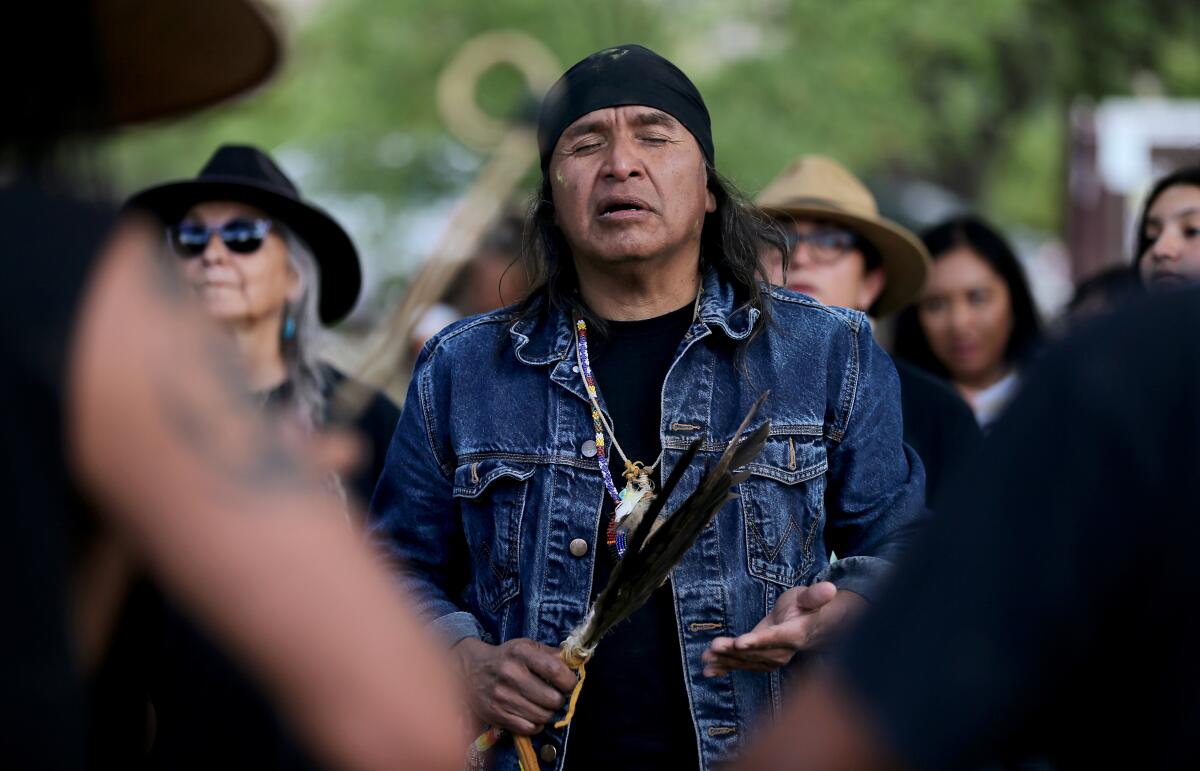
- Share via
A heavily divided panel of federal judges Friday rejected an Apache religious challenge to the construction of a massive copper mine on Oak Flat, a stretch of land in Arizona that tribe members consider sacred and irreplaceable.
The tribe members, who go by the name Apache Stronghold, denounced the ruling in the closely watched case and pledged to fight on with an appeal to the U.S. Supreme Court.
“Oak Flat is like Mount Sinai to us — our most sacred site where we connect with our Creator, our faith, our families and our land,” Wendsler Nosie Sr., an Apache elder and leader of the group, said in a statement. “Today’s ruling targets the spiritual lifeblood of my people, but it will not stop our struggle to save Oak Flat.”
Vicky Peacey, president and general manager of Resolution Copper, the company behind the proposed project, welcomed the decision.
“There is significant local support for the project, which has the potential to supply up to one quarter of U.S. copper demand, add up to $1 billion a year to Arizona’s economy and create thousands of local jobs in a region where mining has played an important role for more than a century,” Peacey said in a statement. “As we deliver these benefits to Arizona and the nation, our dialogue with local communities and tribes will continue to shape the project as we seek to understand and address the concerns that have been raised, building on more than a decade of government consultation and review.”
Apache tribe members say Arizona land slated to be destroyed for a copper mine is sacred. Their legal battle is now a major religious liberty test.
Apache Stronghold had asked the court to block construction of the planned mine on the grounds that it would violate their constitutionally protected religious rights and an 1852 treaty between the United States and the Apache. The group said Oak Flat — on the edge of the Tonto National Forest outside Phoenix, not far from the San Carlos Apache Indian Reservation — is a unique and biodiverse archaeological site used for religious ceremonies they cannot hold anywhere else.
According to federal planning records, the multibillion-dollar mine would transform Oak Flat — which the Apache call Chí’chil Bildagoteel — into a nearly two-mile-wide, 1,000-foot-deep industrial crater to access one of the largest untapped copper ore deposits in the world.
Resolution Copper is a subsidiary of the multinational mining companies Rio Tinto and BHP Group. Apart from the court challenge, the project remains under a federal environmental review.
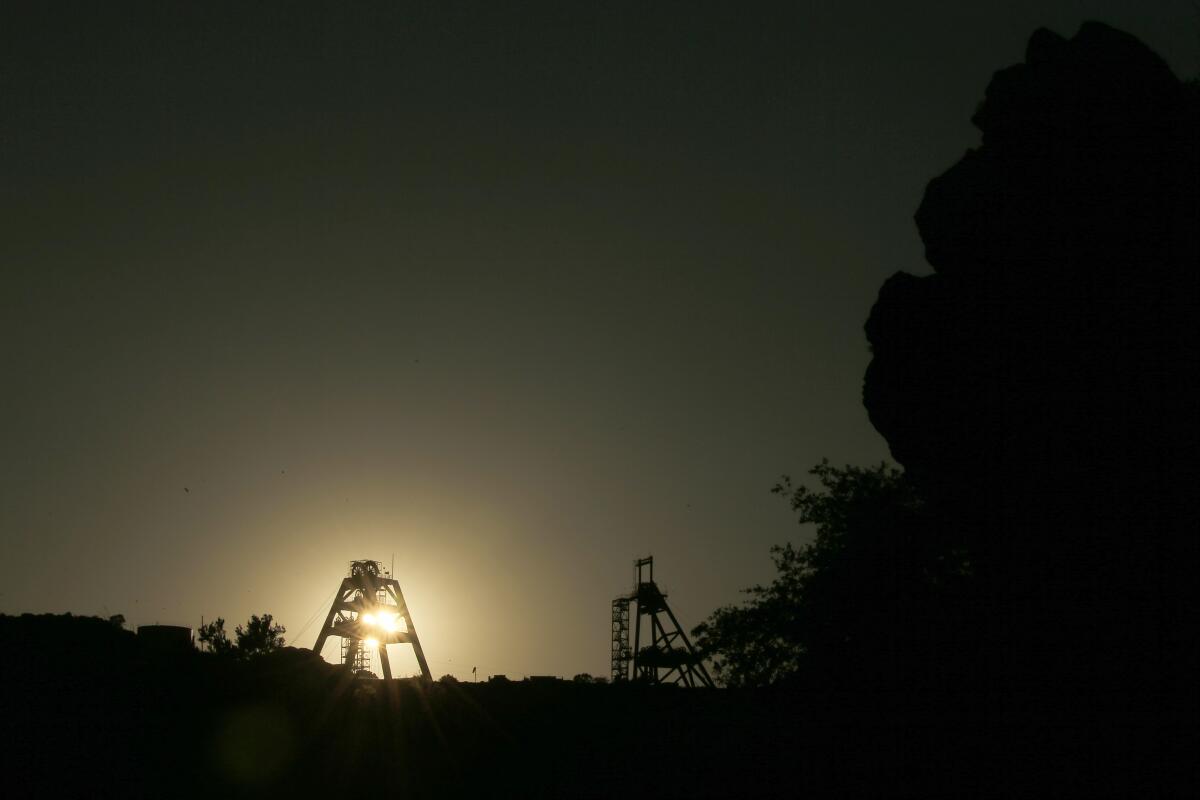
In a 6-5 ruling by the U.S. 9th Circuit Court of Appeals, Judge Daniel P. Collins wrote that Apache Stronghold’s religious claims failed because, while the government’s transfer of federal land to Resolution Copper would significantly interfere with their ability to practice their religion, it would not “coerce” them into acting contrary to their religious beliefs, “discriminate” against or “penalize” them, nor deny them rights or privileges afforded to other citizens.
Collins, an appointee of President Trump whose opinion affirmed a lower court decision, wrote that Apache Stronghold had not only asked for the government to allow their free exercise of religion, but for “de facto” ownership of a “rather spacious tract” of public property — a request he said had to be rejected.
Collins was joined by Judge Carlos T. Bea, a George W. Bush appointee, and four other Trump appointees to the court: Mark J. Bennett, Ryan D. Nelson, Danielle J. Forrest and Lawrence VanDyke.
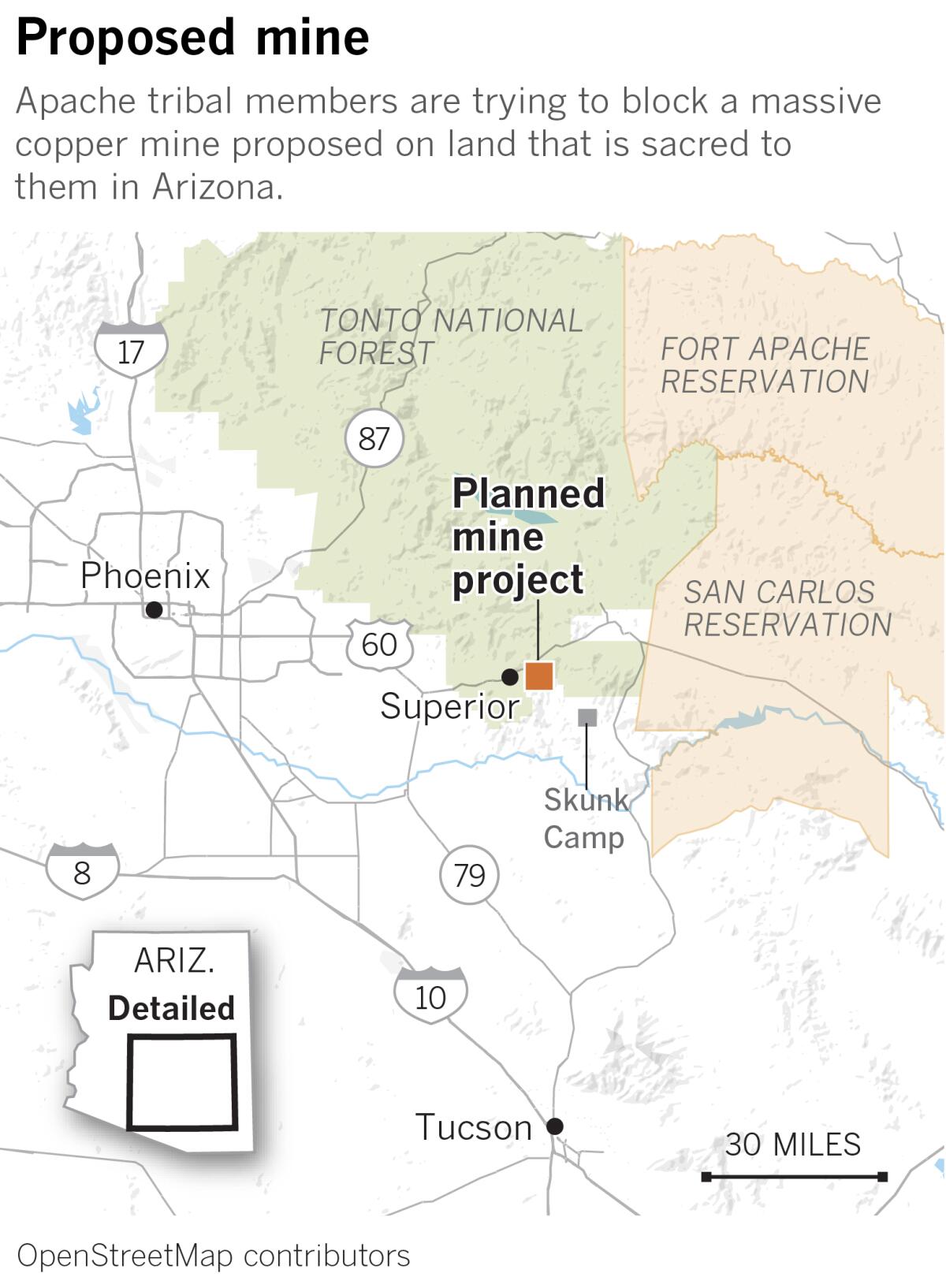
In a dissent joined fully or in large part by the remaining judges of the panel, 9th Circuit Chief Judge Mary H. Murguia, an Obama appointee, wrote that the “utter destruction” of Oak Flat clearly represented a “substantial burden” on the Apache’s religious rights under the federal Religious Freedom Restoration Act and should therefore be blocked — and the case sent back down to the lower courts for reconsideration.
“This conclusion comports with the First Amendment’s protection against government conduct prohibiting the free exercise of religion, because the destruction of the Apaches’ sacred site will prevent worshipers from ever again exercising their religion,” Murguia wrote.
Several other judges wrote their own dissents and concurrences, as well — reflecting a diverse array of opinions in a complex case that has created strange bedfellows, uniting religious conservatives with liberal environmental activists, and drawn interest from a vast array of other interest groups, from heavy industry to megachurches to rock-climbing enthusiasts.
Attorneys for Apache Stronghold said the split nature of the court’s decision put the case “on a fast track” to the Supreme Court.
“Blasting a Native American sacred site into oblivion is one of the most egregious violations of religious freedom imaginable,” said Luke Goodrich, an attorney for the group. “The Supreme Court has a strong track record of protecting religious freedom for people of other faiths, and we fully expect the Court to uphold that same freedom for Native Americans who simply want to continue core religious practices at a sacred site that has belonged to them since before the United States existed.”
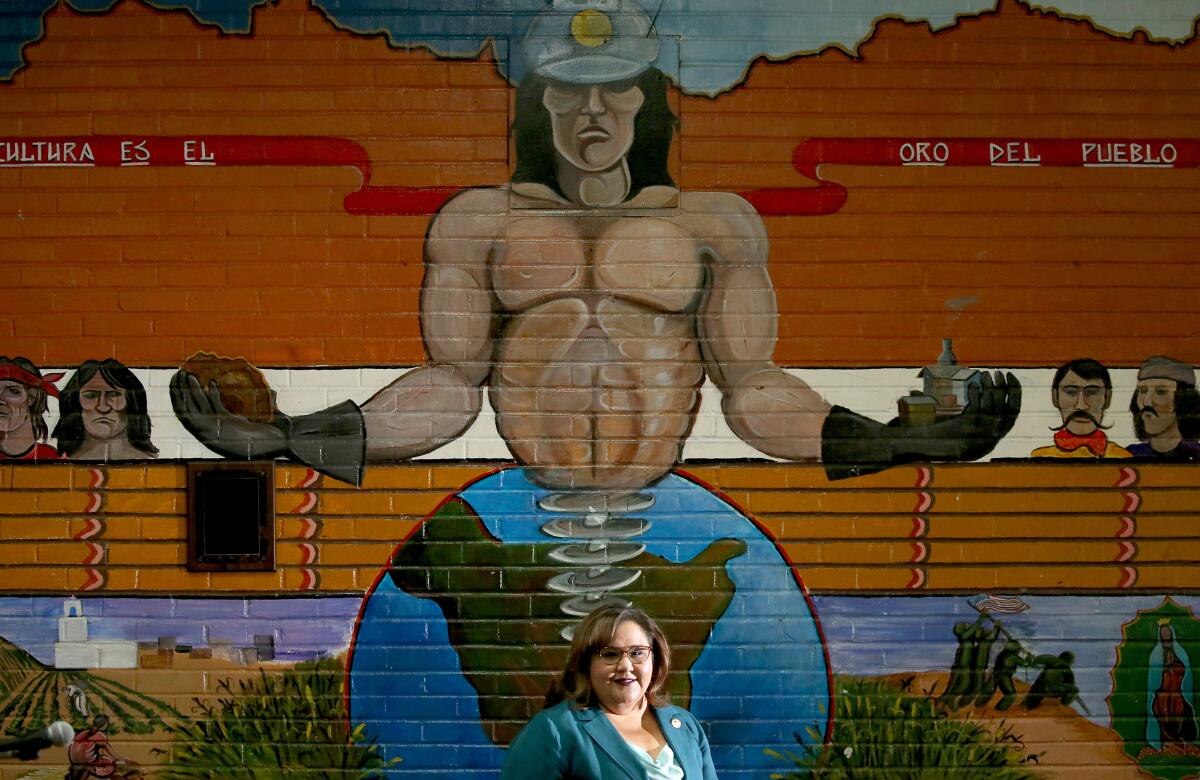
Whether the conservative-leaning high court will indeed see legal cause to revisit the decision is unclear.
Nosie’s 24-year-old granddaughter, Naelyn Pike, a prominent youth voice in the battle, told The Times that Friday’s decision was a reminder of her people’s “inheritance of colonization and oppression” — and one that religious people of all stripes should reject.
“Indigenous leaders and all religious leaders of this country must stay resilient through faith and prayer so that we can fight against religious oppression,” she said.
Mila Besich, mayor of nearby Superior, Ariz., welcomed the decision.
“This has been something that we’ve all been waiting for, one way or the other,” she said.
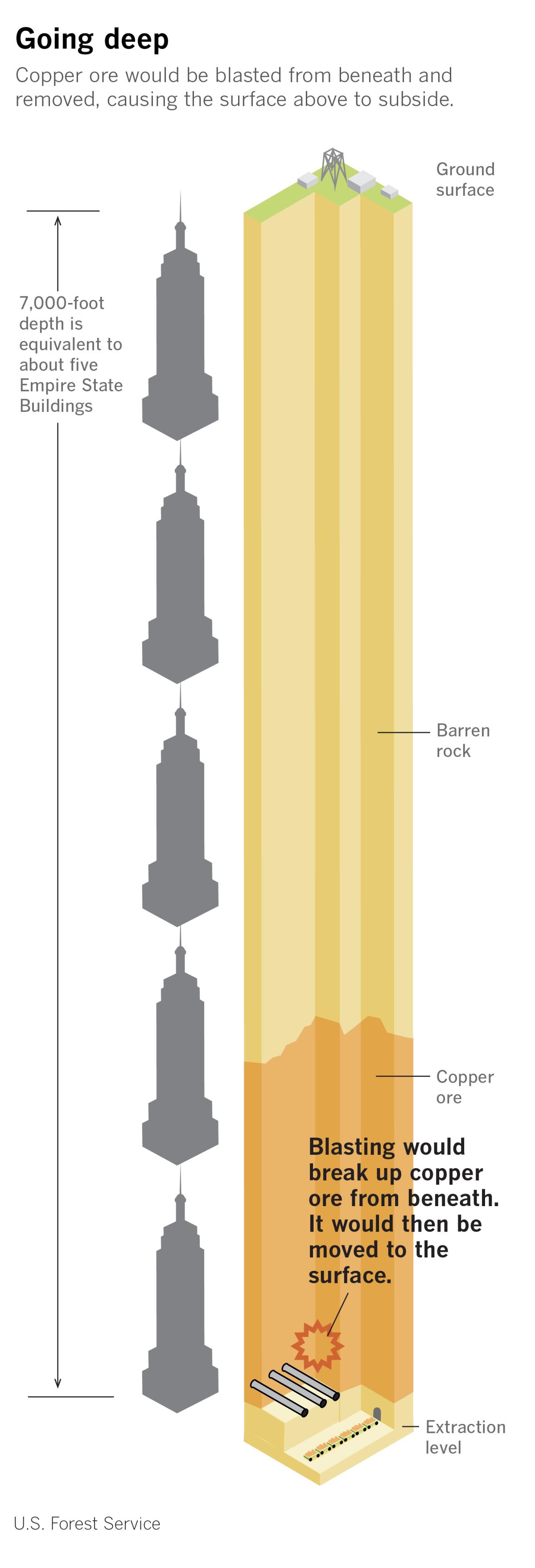
The mine promises to bring thousands of jobs to Superior, and Resolution Copper has already given millions of dollars to the town for building renovations, business development, schools, roads and other projects.
Besich said the court’s decision appeared to be well-reasoned, and she hopes it will help clear other hurdles — including the pending federal environmental review — and kick the mine’s promised hiring into high gear.
“When this mine finally gets open, it’s going to bring high-paying jobs to our community, which is going to add to the vibrancy of our community and our sustainability,” Besich said. “Mining is one of the last few work sectors where people can make a living wage for their families without needing a college degree.”
Copper is used in electric vehicles and a slew of other modern technology, and Besich said her town wants to fuel the “green economy” of the future while building a firm economic foundation that will see Superior into the future — well beyond the mine’s projected 60-year lifespan.
The copper deposit thousands of feet below Oak Flat holds an estimated 1.4 billion tons of ore, containing an estimated 40 billion pounds of copper, according to federal records.
Resolution Copper’s plans call for the deposit to be blown up into small pieces and hauled out through mine shafts. As a result of that process, the surface above — the cactus-covered, sun-baked landscape of Oak Flat — will slowly crater into itself, the plans say.
More to Read
Sign up for Essential California
The most important California stories and recommendations in your inbox every morning.
You may occasionally receive promotional content from the Los Angeles Times.















